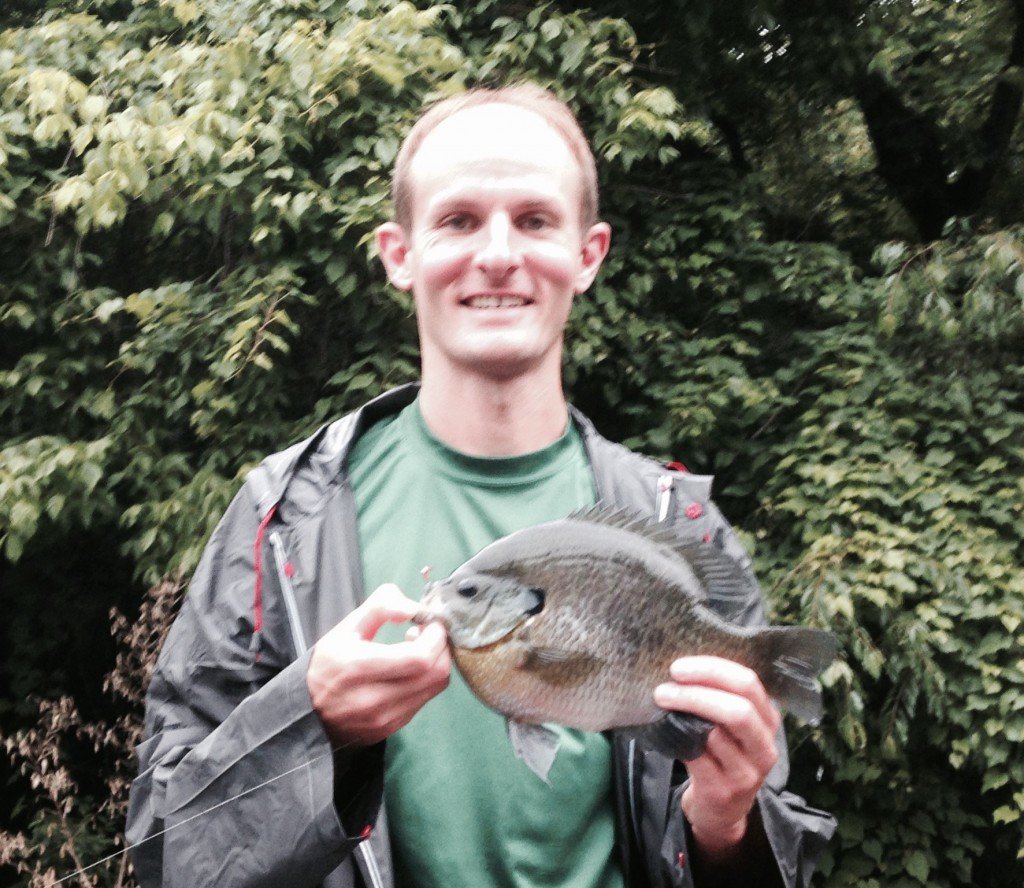Stocking and Managing Tennessee Ponds: Avoid Deception
In a perfect world, every business owner would be honest to a fault, brimming with integrity, and always concerned with the best interest of the customer above his own. Unfortunately, we live in a world where people will sometimes bend the truth, sometimes outright break it, for the sake of making a quick buck. Sometimes the truth-bending takes the form of misleading advice; sometimes it is as simple as omission.I made a blog post on here a while back about one of our competitors that has been telling pond owners that coppernose bluegill won't survive Tennessee winters. It would be one thing if that were a widely-held opinion among fisheries biologists and pond professionals; but such is not the case. All of the most established pond companies working in this state stock coppernose bluegill, and have for many years; between those several companies and ourselves, coppernose have no doubt been stocked in thousands of Tennessee ponds. (According to TWRA, Tennessee has approximately 200,000 ponds and small lakes - and this number comes from a publication that has been available since at least the late eighties, as I read it when I began managing ponds outside Columbia in 1987, so it is safe to say that the number now is most likely higher.) I personally have made available via this world-wide web dozens of photos of coppernose between a pound and two pounds in weight that I grew in Tennessee ponds; so there is ample evidence that coppernose not only survive, but thrive in our waters, and that they grow at a faster rate in said waters than northern-strain bluegill. For a business owner to state something which runs contrary to a mountain of physical evidence, when it just so happens that the unsupportable statement they're making serves the best interest of their business since they don't raise coppernose themselves, verges into dishonesty, and deceiving the pond owner.Just as bad as misinformation, is deception by omission. We don't market our coppernose or our hand-painted bluegill to pond owners in Illinois or Indiana for one simple reason: because those climates are beyond the range where Florida-strain fish have done well, whether it be bluegill or largemouth. We could plaster states north of us with monthly mailings, and would no doubt be able to sell both our Florida strains of bluegill to some pond owners in those states; and to be completely fair, we even know of at least one pond in that direction where some Florida bluegill are doing well. In spring 2015 a pond owner in central Indiana contacted us wanting some coppernose. I tried to talk him out of it: I told him northern-strain bluegill would be a better choice where he was due to the climate. But he insisted; he said he had a neighbor who had had coppernose in his pond for two years or more, and they were getting big, and he wanted coppernose. So we took him 500 intermediate coppernose. Did I then suddenly begin marketing my warm-natured bluegill to every pond owner in the Ice Belt? By no means - because I still don't feel they're the best option for those latitudes; and most importantly, the science and other pond consultants agree with me.There's a company that three or so years ago opened an office in Nashville. Their main office is in another state. Don't get me wrong: there's nothing whatsoever untoward with opening an office in another state. We don't have offices anywhere other than Tennessee, but in the last eighteen months we have worked on ponds and lakes in eight states, and have been contacted by pond owners in several others as far away as Texas, Colorado, and Florida wanting our fish, guidance, or both; but we try to focus first on our more local clients simply because we are finite and time is finite and we want to do the best job possible for the people we do work with.We have a client in Indianapolis, a 60-acre lake; but we most certainly don't stock our Florida bluegill in that lake, because odds are they're not going to do as well as northern-strain bluegill will.Which brings us back to our new competitor that came here from not one but two states removed north of us. Again, this is a free-enterprise country, and we wouldn't for a second dispute their right to try to take over this state; what bothers us, and what we think you as a pond owner should consider before you hire them to stock your pond, is that they're selling northern-strain bluegill and northern-strain largemouth to you the pond owner, and they're not telling you that every one of the largest and most established pond companies working in this state is stocking Florida strains for bluegill and bass both because said strains grow significantly larger than northern-strain fish in this climate, and most pond owners who take the time to stock their ponds prefer bigger fish to smaller fish. If there were widespread disagreement about which strains do better in our climate, it would be one thing to sell exclusively northern-strain, although even then we feel it would be misleading not to at least avail the pond owner of the existence of the Florida strains; but, save our one competitor west of here that is more than happy to openly mislead through bad information, everyone else is stocking coppernose bluegill and either F-1 or pure Florida largemouth.Some pond owners, by the time they call us wanting fish, have already done significant research on their own and have a good idea of current trends both in pond management in general and more specifically in what is being done right now in our region, the Southeast. Often, though, when a pond owner calls us he or she has very little idea what they need: they just know they want fish in their pond. Is it a tragedy when such a pond owner happens to call that company that's headquartered two states north of here rather than us, and gets his pond stocked with fish that won't grow as big as those in his neighbor's pond because his neighbor got coppernose bluegill and Florida bass from us or one of the other companies not headquartered two states away? No, it's not a tragedy; he just won't catch fish as big as his neighbor's. That first fish his grandson catches may be a five-ounce bluegill rather than a twelve- or sixteen-ouncer; that first bass he catches may only weigh a pound or two rather than seven or nine. To be completely fair, genetics are not the only part of the equation, by any stretch of the imagination; but just as we don't aggressively market our business in northern Illinois or Michigan because we have no experience with climates that far north and don't feel we can do a better, or as good of, a job as experienced pond companies in that area, it's more than a little unlikely that that company from two states away is going to grow bigger fish for you in your Tennessee pond than a company owned by a Tennessee native who has been managing ponds here since 1987. Is it deceptive to the pond owner to aggressively represent the services of your company to him or her as the best option for his or her pond when you're not the most qualified to actually do the job?I'd be willing to bet that at least one or two people reading this post have, at some point in their lives, had an opportunity to make money that they didn't take simply because they felt they weren't the best person for the job, and they didn't want to do a disservice to the person wanting to hire them.We don't market our business in Illinois or Michigan, or Ohio. If money is the only thing in the world that matters, we should be striving to get to the level where we can open pond offices all across America; but money is not all that matters in this world, and we would rather be known as the very best pond management company in the Southeast than the biggest one in the country. What kind of person do you want stocking and/or managing your pond: one who's all about the buck, or all about your enjoyment of your pond?Here are a couple photos of coppernose bluegill and F-1 largemouth that have been caught from ponds we have managed in the past four years. You won't find photos of fish this big on the website of that company from two states north of here; that's something you might want to consider when deciding who to hire to stock your pond.




